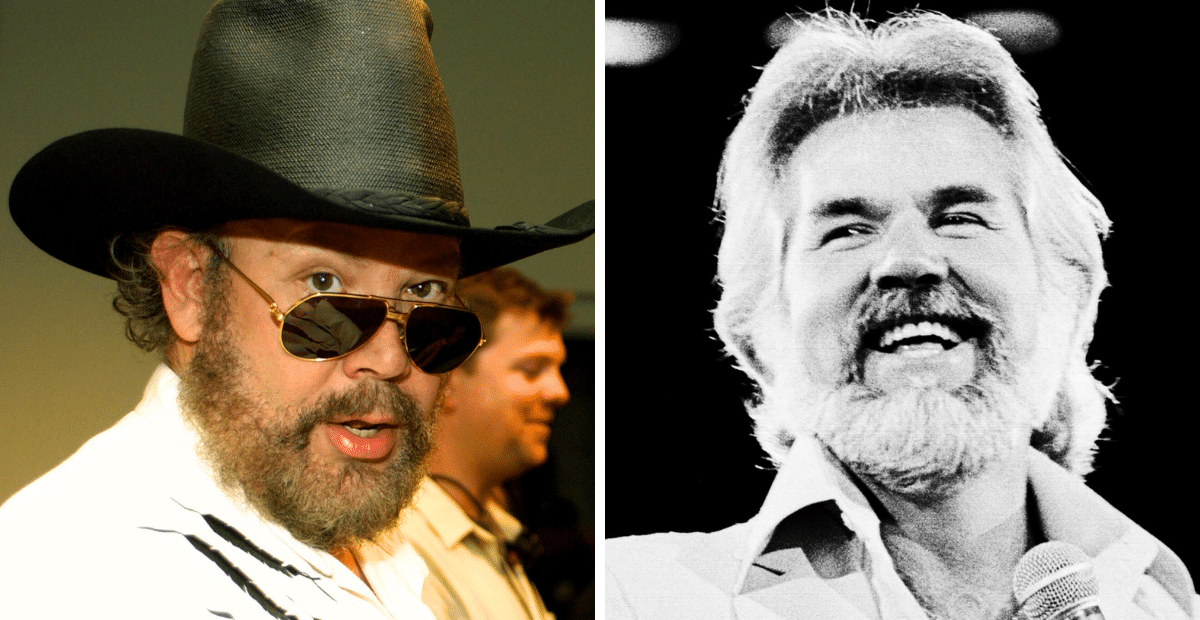7 ’80s Country Hits That Are Now Considered Offensive Today
on Dec 12, 2024 • Updated Feb 28, 2025

7 Country Hits From The ’80s That Some Modern Listeners Consider To Be Offensive…And Why
Did you know that some of the biggest country hits from the ’80s are considered offensive today? The reasons are varied, and some may surprise you.
While some older country hits were considered controversial when they were first released, they’re no longer viewed as offensive today. Other country songs were popular in the past but now spark more negative feelings than they did originally.
Today’s listeners view ’80s country songs through new eyes. Some tracks that charted during the decade don’t hold up as well when viewed through a modern lens.
Throughout this list, we’ll detail why some modern listeners are offended by ’80s country songs such as The Charlie Daniels Band’s “Simple Man” and Hank Williams Jr.’s “If The South Woulda Won” Keep reading for the explanations.
Here Are 7 Country Hits From The ’80s That Some Modern Listeners Find Offensive
“Nag, Nag, Nag” – Bobby Braddock
Bobby Braddock is most well-known as the songwriter behind iconic country songs such as “He Stopped Loving Her Today,” “Golden Ring,” and “I Wanna Talk About Me.”
Braddock also released three albums as a solo artist. His second, which was a novelty album, was 1980’s Love Bomb. It contained the track “Nag, Nag, Nag.” Braddock released the song as a single that same year, and it reached the 87th spot on what is now the Hot Country Songs chart.
Some listeners now consider “Nag, Nag, Nag” offensive because of its condescending tone. The narrator talks down to his lover, saying all she ever does is nag and critique him. At one point, he even sings, “Sometimes I’d like to shove you.”
The song ends with the sound of a gunshot, implying that the woman’s “nagging” prompted the narrator to take his own life.
Since Love Bomb was a novelty album, it seems Braddock was trying to be funny with “Nag, Nag, Nag.” But many modern listeners aren’t amused by the lyrics.
“Scarlet Fever” – Kenny Rogers
Mike Dekle wrote the song “Scarlet Fever,” which Kenny Rogers recorded for his album We’ve Got Tonight. Rogers released the song as the album’s third single in June 1983.
“Scarlet Fever” reached the fifth spot on the U.S. Hot Country Songs chart and the fourth spot on the Canadian RPM Country Tracks chart. It also crossed over to claim the 94th spot on the all-genre Billboard Hot 100 chart.
But the lyrics of “Scarlet Fever” don’t sit right with listeners today.
The song has the narrator longing after a nightclub dancer named Scarlet. While they never speak, he finds himself infatuated with her, singing, “Every night I’d dream, she’d fall in love with me.” The song ends with the narrator feeling heartbroken after learning that Scarlet left the nightclub to pursue better things.
While those lyrics make many people uncomfortable, the real kicker comes when the narrator reveals that he thought Scarlet looked 25 but learned she was only 16.
Considering the subject matter, it’s easy to understand why “Scarlet Fever” is one ’80s country hit listeners find offensive now.
“Simple Man” – The Charlie Daniels Band
The Charlie Daniels Band released “Simple Man” in 1989 as the lead single from their album of the same title. The song was written by Charlie Daniels, Taz DiGregorio, Jack Gavin, and Charles Hayward.
The track reached the 12th spot on the U.S. Hot Country Songs chart and the 15th spot on the country chart in Canada. Listeners connected with the lyrics about a “Simple Man” who’s upset about all of the dishonesty, corruption, and crime in the world.
While that sentiment still rings true with many modern listeners, other lyrics don’t resonate similarly. The narrator proposes using violence to handle criminals like drug dealers, saying how if he had his way, he’d hang them in a tree and “let them swing.“
The narrator later suggests that more serious criminals be taken to the swamp, tied to a stump, and “Let the rattlers, and the bugs, and the alligators do the rest.“
These days, some people may still agree with the attitude in these lyrics, but many modern listeners do not.
“Do You Love As Good As You Look” – The Bellamy Brothers
Jerry Gillespie, Charlie Black, and Rory Bourke wrote “Do You Love as Good as You Look.” The Bellamy Brothers recorded the track, and released it in 1981 as the second single from their album Sons of the Sun.
“Do You Love as Good as You Look” reached the #1 spot on the Hot Country Songs chart. It reached fourth place on the country chart in Canada.
The song features the narrators singing about a beautiful woman with long blond hair and blue eyes. They fall head-over-heels for her and wonder if she “loves as good as she looks.”
As the chorus goes:
“Can you satisfy your man, like your body says you can?
Judging from the cover, I’d love to read the book
Honey, do you love as good as you look?“
Today, some listeners feel these lyrics are offensive and objectifying, as they focus solely on the woman’s physical appearance and none of her other attributes. Some modern listeners also take issue with the narrators’ quick jump to paint the woman in a seductive light.
“Tokyo, Oklahoma” – John Anderson
Mack Vickery wrote “Tokyo, Oklahoma,” which John Anderson turned into a hit. Anderson made the song the title track of his 1985 album.
He also released the song as a single. It reached the 30th spot on the Hot Country Songs chart and claimed the 33rd position on the country chart in Canada.
The narrator in “Tokyo, Oklahoma” lives in Oklahoma, while the woman he loves is in Japan. He calls her on the phone and eventually finds himself flying on a plane to see her in person. When they meet at the airport, he asks her to marry him, and she agrees.
Nowadays, some people are offended by the language used in the song when describing the woman. The narrator also seems to sing in a stereotypical Japanese accent, which offends a fair number of more modern listeners.
“Where’s The Dress” – Moe Bandy And Joe Stampley
George Cummings, Bucky Lindsey, and Tony Stampley wrote “Where’s the Dress.” Moe Bandy and Joe Stampley recorded the song and released it in 1984. It reached the eighth spot on both the U.S. and Canadian country charts.
The song was written as a parody of the band Culture Club and its lead vocalist, Boy George, who is known for his androgynous style. The song’s narrators wonder if they should follow in Boy George’s lead and dress in a similar fashion, seeing it as a potential key to success.
Bandy and Stampley wore dresses and earrings when they promoted the song, and they dressed similarly for the single’s cover art.
Nowadays, some people are offended by the lyrics in this ’80s country hit. Some listeners feel the song makes fun of those who wear more androgynous or gender-neutral clothing.
For his part, Boy George wasn’t offended by the song when it was released. However, he sued Bandy and Stampley for including “Karma Chameleon” in the track without his permission.
“If The South Woulda Won” – Hank Williams Jr.
Hank Williams Jr. has never been afraid of ruffling a few feathers. His larger-than-life attitude is a big reason why he has so many fans and is considered a country music icon.
Williams released his self-penned song “If the South Woulda Won” in 1988. The song served as the lead single from his album Wild Streak. It reached the eighth spot on the Hot Country Songs chart and the 22nd spot on the country chart in Canada.
The narrator sings about how different the United States would be if the South won the Civil War. Some of the changes he imagines are having all cars made in the Carolinas instead of China, printing his dad Hank Williams on the $100 bill, and moving the Supreme Court to Texas.
Many modern listeners find these lyrics and the song as a whole to be offensive since they glamorize what the country would have been like after a Confederate victory.
The lyrics also quote the folk song “Dixie,” which is another reason some modern listeners are offended by the track. “Dixie” and the word itself have developed more negative connotations since the ’80s.
The songs featured in this list are products of their time when attitudes and understandings were often vastly different from those today. Now, as we look back on these tracks with a modern lens, we can recognize their success upon their initial release while also acknowledging their faults.


















